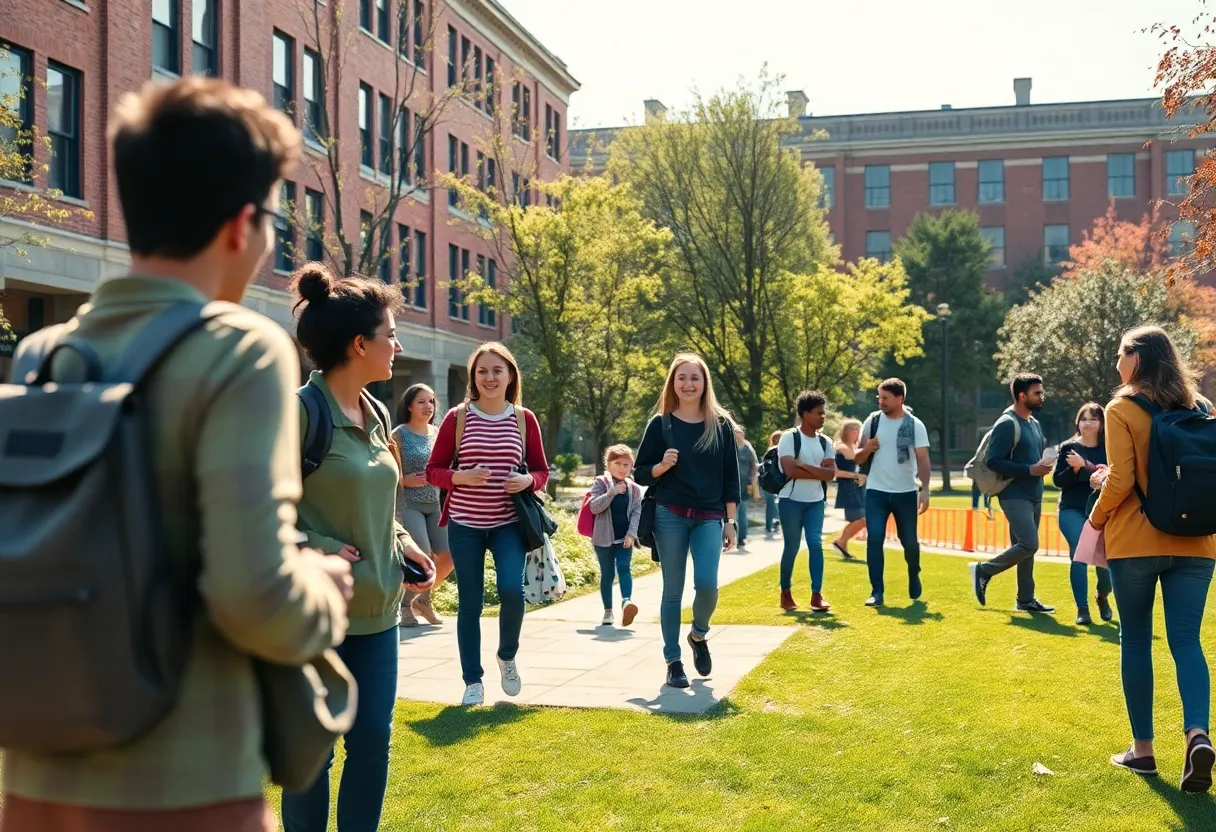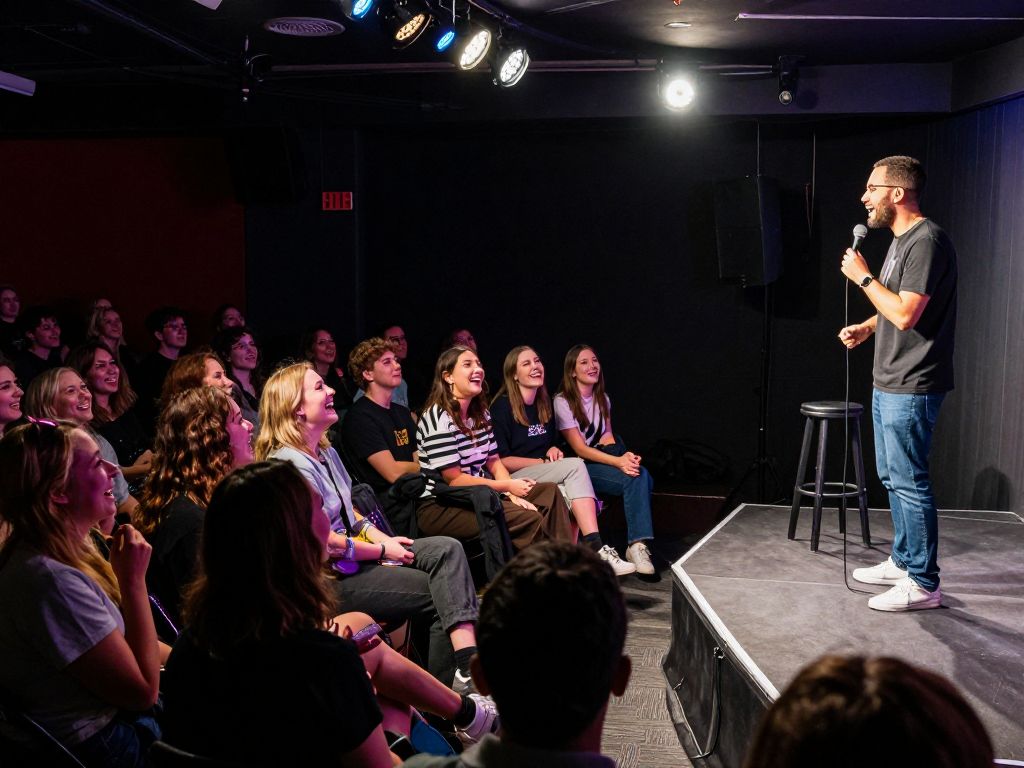News Summary
Boston’s higher education institutions are confronting significant challenges due to demographic changes and policy pressures. With a decline of over 45,000 college students in Massachusetts, experts forecast further enrollment decreases that could affect the local economy and workforce by 2030. Institutions are reassessing financial contributions amid funding cuts and scrutiny on international students. Community colleges may play a vital role in addressing workforce shortages and supporting diverse populations. The educational landscape’s evolution highlights the necessity for collaboration to adapt and secure the future of education in the region.
Boston is facing significant challenges in its higher education landscape due to demographic shifts and political pressures, raising concerns for the future of its colleges and universities. Over the past decade, Massachusetts has experienced a decline of more than 45,000 college students, a trend driven by decreased birth rates following the Great Recession and an overall drop in the number of college-age individuals.
Experts estimate that further declines in enrollment are likely, which could lead to potential shortages of skilled workers in industries relying heavily on higher education graduates by 2030. The state’s economy, as well as its identity, is at risk as federal funding cuts threaten educational support, while increasing scrutiny on international students complicates their ability to study in Massachusetts. This group has historically made a vital contribution to the local economy and labor force.
In response to these pressures, higher education institutions in Boston are being compelled to reassess their financial contributions to the city. The Trump administration’s policies against higher education further exacerbate the situation, pushing local colleges to contemplate increases in their tax revenues. The socio-economic ramifications of potential college closures are profound, with local communities facing the threat of diminished educational opportunities and a contraction of available talent in the workforce.
In light of these challenges, the Massachusetts education community is considering strategies to adapt and support diverse backgrounds. Community colleges may be pivotal in addressing workforce shortages and catering to underrepresented populations. The shifting landscape underscores the urgent need for a collaborative approach that prioritizes retaining and supporting both current students and future generations.
Recent polling from the University of New Hampshire indicates that only 49% of Massachusetts residents approve of Governor Maura Healey’s job performance, which could reflect broader concerns regarding educational policy and its impacts on the economy. Additionally, events and programming from organizations such as the Boston Public Library and local community groups aim to engage residents and promote educational resources, thereby fostering connections in the community.
Outdoor activities are also gaining traction, such as the free Summer Reading Program offered by the Boston Public Library, which provides participants with a tote bag and book bingo card. Fitness enthusiasts can participate in the Blue Line Flex series, which is launching outdoor workouts that include activities like yoga and boxing. Efforts to cultivate social connections are evident with initiatives like the Making Friends After College Facebook group, which has organized a free beach day at Carson Beach.
Cultural celebrations, including two outdoor dance parties in Cambridge for Juneteenth later this month, further illustrate Boston’s commitment to community engagement during these turbulent times.
Amidst rising temperatures, with forecasts predicting a peak nearing 90 degrees this Thursday, the city’s vibrant restaurant scene remains a refuge for many. Perspectives on local culinary favorites, like lobster rolls, continue to thrive, reflecting the unique blend of Boston’s education and hospitality sectors.
As the higher education landscape evolves in response to changing demographics and policy pressures, the imperative for Massachusetts to innovate and adapt has never been more pronounced. The state’s educational institutions will be crucial in shaping the future workforce, and stakeholders must collaborate to ensure success amid the emerging challenges.
Deeper Dive: News & Info About This Topic
HERE Resources
Boston’s Mayoral Race Faces Controversy Over Super PAC Spending
Needham Schools Implement Reusable Metal Trays to Reduce Waste
Massachusetts Leaders Warn of Federal Funding Cuts Impact
Suzanne Roeder Appointed CFO of Bond Brothers
Massachusetts Educators Respond to ICE Policy Changes
Top-Ranked Private High Schools in Boston Released
Super PAC Backs Josh Kraft Against Mayor Wu in Boston
Landlord Faces Financial Crisis After Tenants Exploit Legal Loopholes
Boston Life-Science Real Estate Market Faces Rising Vacancies
Boston Mayoral Race Intensifies as Kraft Invests $2 Million
Additional Resources
- Axios: Trump, Massachusetts Economy, Higher Education, and Healthcare
- Wikipedia: Higher Education in the United States
- Bloomberg: Boston Pushes Harvard and Other Colleges for Money
- Google Search: Boston Higher Education Enrollment Decline
- New York Times: Boston, Trump, and Harvard University Funding
- Google Scholar: Higher Education Challenges Massachusetts
- Boston Globe: Massachusetts Colleges Face Enrollment Drop
- Encyclopedia Britannica: College
- Washington Post: International Students, Harvard, and Trump
- Google News: Boston Higher Education Future

Author: STAFF HERE BOSTON WRITER
The BOSTON STAFF WRITER represents the experienced team at HEREBoston.com, your go-to source for actionable local news and information in Boston, Suffolk County, and beyond. Specializing in "news you can use," we cover essential topics like product reviews for personal and business needs, local business directories, politics, real estate trends, neighborhood insights, and state news affecting the area—with deep expertise drawn from years of dedicated reporting and strong community input, including local press releases and business updates. We deliver top reporting on high-value events such as Boston Marathon, Head of the Charles Regatta, and Boston Harborfest. Our coverage extends to key organizations like the Greater Boston Chamber of Commerce and Associated Industries of Massachusetts, plus leading businesses in finance, biotech, and insurance that power the local economy such as Fidelity Investments, Biogen, and Liberty Mutual Insurance. As part of the broader HERE network, we provide comprehensive, credible insights into Massachusetts's dynamic landscape.




